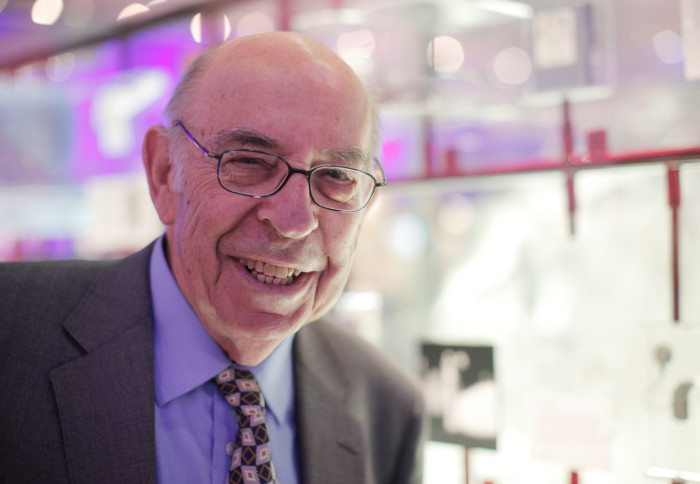
Colin Caro, M.D.
AIMBE College of Fellows Class of 1995 For pioneering contributions to the study of the role of hemodynamics in atherosclerosis.
A tribute to Professor Colin Gerald Caro (1925-2022)
Via imperial | April 4, 2022The Department of Bioengineering remembers Emeritus Professor Colin Caro, an integral and much loved pillar of the Bioengineering community.

Professor Caro was born in Durban, South Africa in 1925.
He was awarded a Doctorate in Medicine (MD) from the University of Witwatersrand in 1961, for a thesis entitled “Pulmonary Function in Patients with Kyphoscoliosis” in which he demonstrated that lung elastic recoil strongly determines airway resistance. After working in different hospitals in South Africa, New York, Pennsylvania and the UK, Colin settled in London in 1960 after being appointed as Lecturer at St Thomas’s Hospital Medical School… Continue reading.
Bioengineering Pioneer Colin Caro at 90
Via Imperial College | January 25, 2016At the age of 90, serial medical innovator Emeritus Professor Colin Caro remains active in research and teaching after 50 years at Imperial.
Multidisciplinary collaboration is a hot topic in academia and research at the moment – but it has been a focus of Emeritus Professor Colin Caro for more than 50 years.
Born in South Africa, he completed his medical training at Edinburgh and London. Yet he always harboured an interest in engineering and was able to combine these twin passion upon joining Imperial in 1966 as Founder and Director of Physiological Flow Studies Unit.
It was there he carried out his pioneering research into the mechanics of blood flow in arteries – using this newfound knowledge to design medical devices such stents that are much safer, more effective and durable.
His patented BioMimics 3D Stent System recently completed a two year randomised controlled trial in human patients – showing significantly improved outcomes.
In the video above Professor Caro talks about his passion for engineering and medicine, developing medical technologies and the key to academic longevity.
 AIMBE
AIMBE
